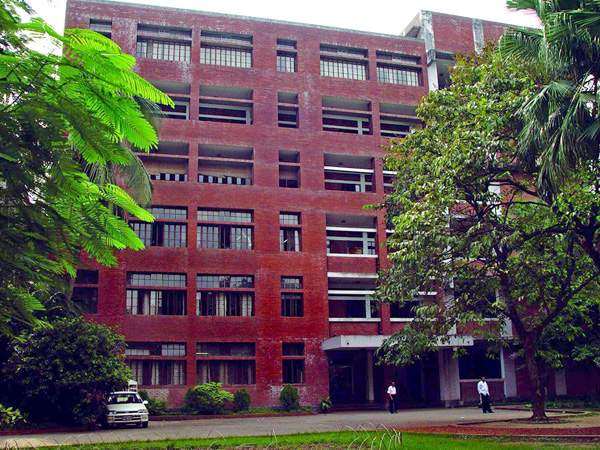

Notre Dame College established by the Holy Cross Fathers in 1949 at Lakshmibazar, Dhaka as the first Catholic college named St Gregory College. It was shifted to a new location in 1950 and from there, to its present site at Motijheel in 1954, when it was renamed Notre Dame College after Mother Mary. The institution, run by Roman Catholics, is open to all students, whether rich or poor, Bengali or tribal, Muslim, Christian, Hindu, or Buddhist.
Notre Dame students demonstrated excellent results in the 1950s. The college took the first place in the combined merit list of the Higher Secondary Certificate Examinations seven times in eight years between 1952 and 1959. The college began with classes in arts and commerce subjects. By 1955, it had bachelor of arts courses and in 1960, it started bachelor of science courses. It got affiliation with the university of Dhaka in 1955 and in 1959, it was declared the best college in East Pakistan in recognition of the high percentage of successful candidates in various university examinations. Meanwhile, the college also earned reputation for its performance in sports and debating and publication of high quality textbooks by its teaching staff.
The college has been endowed with well-trained and devoted teachers from the very beginning but in the 1960s, it fell short of teachers. The problem led the college authority to borrow volunteers from a British organization called Graduate Volunteers Service Overseas. They taught at the college from 1963 to 1970. It was during this period when renowned researcher Father Timn got associated with the college. Like every other college in the country, Notre Dame was becoming more and more trapped in the growing political agitation throughout the country during 1968-69 and its administration was put to a delicate and trying situation especially in the months of the country's war of liberation. The college got deeply involved in relief and rehabilitation work at that time and it found the activities as a great opportunity for the teachers and students to work together and share ideals and values.
The college continued its efforts to provide good education and character formation to its students in independent Bangladesh and had to make a series of adjustments to the changed environment. The college has a department of guidance and counseling and a director of studies. It inspires the students to become socially conscious. It has a literacy program for slum children. It teaches social welfare as a special discipline. It has a unique student work program, under which about 125 students work in the college to pay for their tuition. It also has a small clinic of its own. The medium of instruction in the college had been Bengali during 1972-1997 and later, English medium was re-opened, although Bengali remained a compulsory subject.